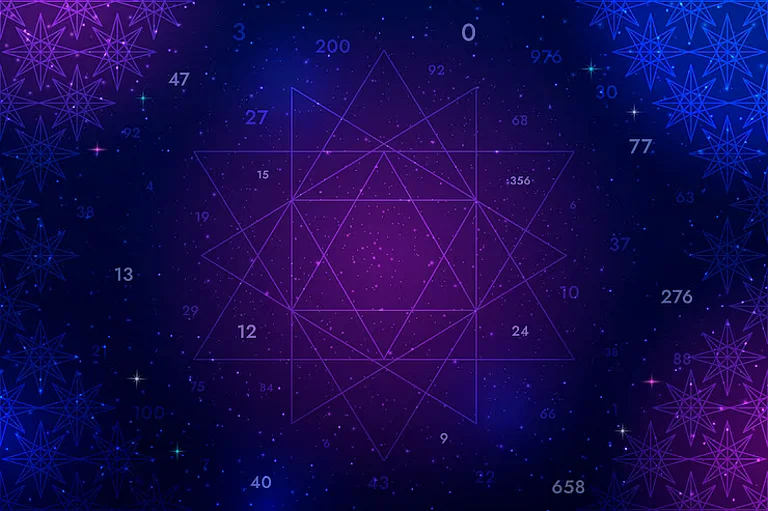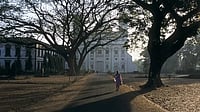Charaiveti: An Academic's Global Journey By Pranab Bardhan
Published by Harper Collins India
“Charaiveti ! Charaiveti !”
The term appears in Shruti Literature; Aitareya Brahmana. It means, keep moving. In fact Lord Buddha ended his sermons using the words,
“Charaiveti, Charaiveti”
that resonated with his philosophy of anicca and anatta. The cause behind deciphering of the term came after coming across Pranab Bardhan’s text, a quasi-memoir (using his own terms) laden with multiple subjectivities that don the lexicon of literary theory. Being a quasi-student of Economics, I initially started reading this book with some hesitation expecting some vapid economics that generally lies beyond the comprehension of laypersons. But, let me frankly confess to you that I enjoyed reading Bardhan’s narrative that emanated from his porous memory.
The book begins with his caravan starting from North Kolkata and is still continuing its yanam. A reader also undertakes his gatikam with the undercurrents of Charaiveti. In the beginning, I felt that this was going to be an illuminating experience that would not be confined to any demarcated spheres but would be the experience of Ashtavadhana.
Class yet classy
We are introduced to the world of Bengali Bhadralok starting with the spatiality of Shantiniketan and the great luminaries that held its reins. We meet famous reformers like Sarala Devi, Nilima Sen, Dr P. K. Roy, Kshitimohan Sen, and others who formed the society to which Bardhan belongs. It offers a chance to dwell upon the contemporary socio-eco-cultural moorings of then Calcutta. The author while giving these descriptions is very well aware of the shortcomings of this intellectual yet tea and biscuit elite; polite society. He also mentions the dogmas that form the normal of this setup. His illuminating comments on the dialects of Bengali, stark observation on the parenting style that often hampers the psychology of the child, and the part which I enjoyed was the complexities involved in the praxis of Marxist communism and its dialectical relationship with religion.
Theorising the theorists
What Bardhan offers us in this text and I feel is very important is his thick description of varied theorists which he read or with whom he interacted. These names are who’s who in the domains of Economics, Politics, Sociology, Statistics, Anthropology, and so on. Take the cue of John Kenneth Galbraith. Bardhan consciously yet unconsciously gives his critical commentary on the state of affairs of India as well as the world by focusing on his idea, ideology, and practice of Functional Anarchy in India, Italy, and the rising fundamentalism in both countries. Similarly, his recollections of events with Joe Stiglitz and the rich commentary vis-a-vis the Israel-Palestine issue and double standards practiced by Americans are brilliantly portrayed. A lot of other such interesting academicians come up in Bardhan’s journey which broadens his as well as our horizons enriching our contextual and conceptual understanding.
The various shades of Marx, Marxian and Marxist(s)
In my limited reading and understanding of Marx, I feel Karl Marx has been the most abused Social Scientist. In a letter to C. Schmidt on 5th August 1890, Friedrich Engels reports Marx saying (in the context of the Paris Commune),
“ce qu'il y a de certain c'est que moi, je ne suis pas marxiste"
("what is certain is that [if they are Marxists], [then] I myself am not a Marxist").
Bardhan points at the above scenario when he comes across the original reading of Marx when he encounters Marx’s original position on Religion rather than just dogmatism propounded by quoting his stance; Religion is the opium of the people.
Much interesting is his delineation of Marxist frameworks employed by academicians like Maurice Dobb, A. L. Morton, Tanika, and Sumit Sarkar among others. His observation which offers a critical standpoint is that the current bunch of Marxists lack the depth and intellectual rigor to grasp the complex societal dialectics thus becoming reductionists. This is illustrated in the episode of his meeting with Marxists of West Bengal and with Chief Minister Jyoti Basu who seems to be a prisoner of contradictions, agreeing and sharing Bardhan’s concerns in private but still adhering to dogmatism in public. This similar contradiction was brought by Mark Tully in his episode with Jyoti Basu owing to hierarchical and Weberian diktats to be compulsory adhered to. Freudo-Marxian, Prof. Murzban Jal’s work too points in the same direction.
Similarly, is Bardhan’s description of an encounter he had with Maoists in Delhi during its zenith, which I feel is must read to understand why it has not been able to achieve its revolutionary goal. What I found reading the text is that the author, rather than being dismissive, wants the ideological Left to grasp the content and context of Marx as a principle rather than dogma. He also calls contemporary Marxists mired in a kind of functionalist fallacy.
Humane humans
Though I have read Amartya Sen’s texts as well as his autobiography, he seems to always have a mesmerizing effect on me. Anything related to him still evokes the same passions that one experiences when encountering his world for the first time. Bardhan’s portrayal of Amartya Sen’s intellectual yet biographical sketch, his mastery over British customary traditions, and the world of British intellectual Dons, all keep the reader engrossed and generate curiosity as to what comes next.
With all due respect to all the greats that appear in the text, my personal favorite was Jean Dreze. This man simply blew up my mind and will take away your heart. There are very few Humans that uphold the Kantian ethos of humane dignity beyond self; Dreze would be my personal first among those few. He creates his own civil society in an uncivil social, humane society within the leviathan state. Dreze is known worldwide for his activism and academics but Bardhan lays before us so many undeciphered facts, especially his period at the London School of Economics, that one couldn’t help but fall in love with this humane human in this age of post-truth.
Passion, positions and academics
Bardhan gives a glimpse into his world of passions -literature, theatre, movies, travels. His rich taste of the above tenets, to frankly confess, compelled me to make a very detailed list of books, authors, scholars, and world cinema to be watched. Such is the depth of his passion that one can’t just stop admiring. Similarly, the academic stuff and the journal he edits, the articles he writes, and his shifting research interests, all are meticulously stated. Maybe a reader having less interest or less awareness of this academic bureaucracy or feeble knowledge of the vanguardism prevalent here can at times get bored too. The author juggles various institutions, chairs, and groups – all enrich his quasi-memoirs and add substance to his writing.
The road less travelled…
Bardhan tersely yet meticulously foregrounds his global travels from Global North to Global South with the same ease with which he describes the lanes of Kolkata or Delhi, making his approach a truly Glocal one. One can make sense of the cities and their varied cosmologies. In fact, I could relate to The City of God by Augustine of Hippo when Bardhan was giving a glimpse into the hearts of cities. Literal it may seem but Patrick Geddes props up to remind and rekindle the city as a drama in time rather than a mere geographical entity.
Finally, in this book, famous personalities come and enrich our lives too, the ones only heard as wizards, statespersons, famous personalities but what Bardhan does and where the beauty of this book lies is it presents the core of these humans by peeling off their worldly or famed layers to point precisely at some examples, the one that comes immediately is P.C. Mahalanobis.
The author portrays that his work may be deemed as bourgeois complacency or a work of levity. As a genuine reader, who spent 5 days with this text taking copious notes, the very index of 15 pages attached to the text absolves it of the charges of Levity at least in my judgement. I enjoyed the text with all its anecdotes, with all its shortcomings, with all its anxieties because as stated at the beginning of this review that I am also a fellow traveller with Pranab Bardhan and moving in the spirit of, ‘Charaiveti ! Charaiveti !’ and opened to the message of the ancient sanskrit hymn,
“Let noble thoughts come to me from all directions”.





















